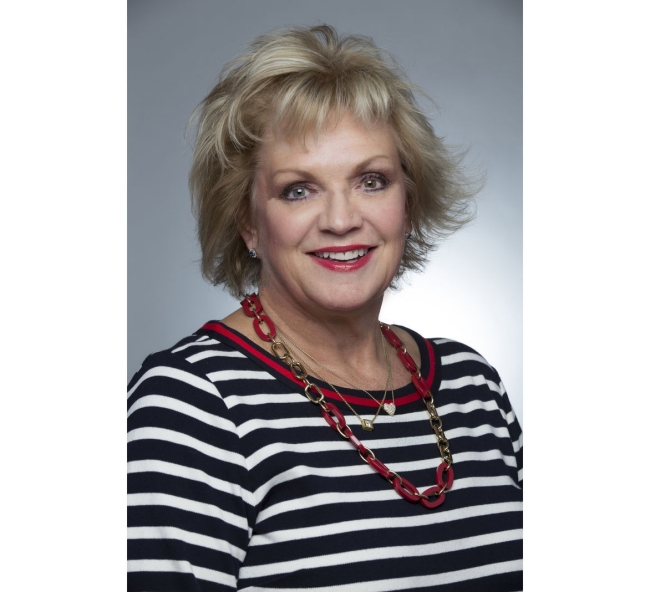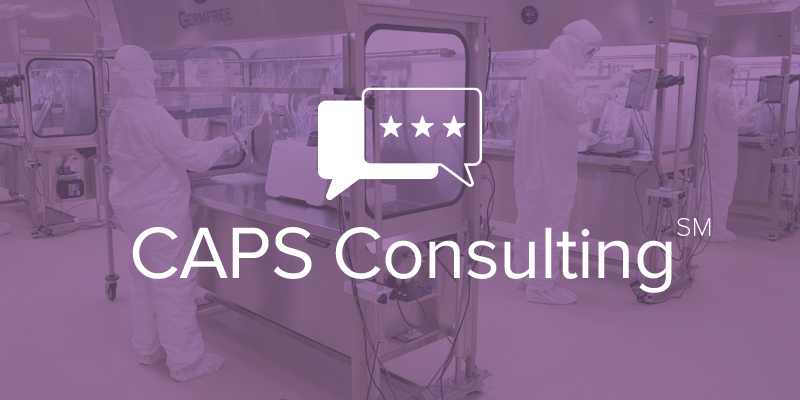How a BPS Certification in Sterile Compounding Can Help Pharmacists Become Designated and Keep Patients Safe
The "Designated Person" Issue
In the field of hospital pharmacy, adjusting to and adhering to requirements in USP <797> can be challenging. Everyday responsibilities such as productivity metrics, drug informatics and antibiotic stewardship programs can divert attention from your sterile compounding program. But with patient safety on the line, it is not something anyone wants to inadvertently overlook.
During a routine inspection, your sterile compounding program will be measured up to USP <797> standards. If your program is already challenged by the current <797>, the proposed changes to <797> may compound your situation.
Some might consider the USP delay in adopting the <797> changes as a gift. We prefer to think of it as an occasion to take a longer look at what comes next. A real opportunity in the next version of <797> is the requirement for organizations to assign a “designated person” who is responsible for very critical aspects of the sterile compounding program.
The designated person or persons will have more defined responsibilities, some of which include overseeing training, ensuring the readiness and operation of ISO class 5 areas, and reviewing SOPs. USP <797> will not, however, tell you how to identify or train designated persons. Instead, you will have an opportunity to select the most effective individuals.
It might seem logical to simply give the designated person responsibility to the person who has the most time available to attend to it. Not so fast. Purposeful and strategic selection of the designated person can do more than check a box. It can help you create a program that lifts quality and allows you to regain balance with your other responsibilities.
The high bar for patient safety should influence your notions about the attributes of an ideal designated person. Multi-tasking and speed don't apply to patient safety. Quality is focused, deliberate, and detail oriented. Take a longer look for candidates who can qualify garbing and hand-hygiene routines, oversee room and hood readiness, and rewrite procedures. Trust us, it will save you time later.
Start with examining established credentialing programs to help streamline the selection of candidates and ensure that all the details are covered.
A Pathway for Staff Pharmacists to Become Designated
The term “designated person” predates <797>. In 2000, it was defined in the ASHP Guidelines on Quality Assurance for Pharmacy-Prepared Sterile Products as, “the pharmacist chosen by experience and training to be in charge of a sterile product preparation area or unit.”1
One way to further distinguish yourself in sterile compounding is to obtain a certification from the Board of Pharmacy Specialties, or BPS.
Recognized around the world, BPS credentials cover such advanced specialty practices as geriatric pharmacy, ambulatory care and oncology. And just last fall, BPS introduced a certification in Compounded Sterile Preparations, which covers facilities, equipment, environmental control, compounded sterile preparations, patient care and quality management.
Today there are 435 pharmacists who can call themselves a BCSCP–Board Certified Sterile Compounding Pharmacist. It’s a rigorous program, but the benefits a BCSCP brings to any pharmacy program are substantial.

We recently spoke with our own Sharon Durfee, RPh, BCNSP, the CAPS Clinical Nutrition Support Pharmacist. Sharon is a selected member of the BPS Specialty Council that developed the sterile compounding specialty requirements and exams. We wanted to learn what it means to become certified in a BPS specialty.
She explained that she added BCNSP in her title after she certified in Nutritional Support Pharmacy Practice. Upon obtaining this recognition, Sharon became the go-to person at her hospital pharmacy whenever the nutritional support team had questions about parenteral and enteral feeding. With Sharon’s certification, her team was also reassured that she could lead the program and enhance patient care.
Not every pharmacist will be eligible to take the BPS certification exam. BPS requires candidates to have a specified number of hours of practical experience in the advanced practice setting that they will test in. In some cases an ASHP accredited pharmacy residency may replace the hour requirement. However, sterile compounding has no residency option. It requires 4,000 hours of practical experience. (See the details on the requirements.)
BPS follows a defined process when it determines which practices it will offer for certification. Few would argue that there is a need for certified sterile compounding pharmacists. As Sharon explained: “A pharmacist with a BPS certification in sterile compounding has demonstrated that they have the knowledge and the experience to ensure quality patient care, improve therapeutic outcomes, assure safety, and to supervise, train, and ensure the competency of the cleanroom personnel.”
“If I were still in my previous practice setting, I definitely would have pursued a board certification in sterile compounding, because it is something I've done my entire career.”
The Bigger Picture
Other BPS specialties identify qualified pharmacists to manage different drug therapies in unique advanced practices. However, because sterile compounding focuses on the creation of compounded drugs, it crosses multiple practices. Sterile compounding is a tangible practice that sets the stage for safe drug therapy.
There is never a finish line for protecting quality and safety. We always have an opportunity to improve ourselves and our operations. In addition to being a critical step in your program, a BPS certification can also be a turning point to help pharmacists become designated.
What’s needed for a Board of Pharmacy Specialty (BPS) in Compounded Sterile Preparations?
In Fall 2019, BPS introduced a certification in Compounded Sterile Preparations, which covers facilities, equipment, environmental control, compounded sterile preparations, patient care and quality management.
Eligibility Requirements:
- Graduation from ACPE accredited pharmacy program or equivalent
- Current, active license/registration to practice in the US
- 4,000 hours practice experience in compounded sterile preparations pharmacy
Examination Outline:
- Standards, Regulations, and Best Practices (20%)
- Facilities, Equipment, and Environmental Control (20%)
- Compounded Sterile Preparations (25%)
- Patient Care (15%)
- Quality Management (20%)
2 Parts - 175 Questions in Total
- Part 1: 100 questions
- Time allotted: 2 hours, 30 minutes
- Part 2: 75 questions
- Time allotted: 1 hour, 53 minutes
- Optional 45-minute break
Stay Ahead of the Curve

Enhancing operational, quality, and standardization initiatives in the hospital pharmacy is within your reach. Through CAPS Consulting, our team of pharmacy experts can help bring your sterile compounding program to the next level.
Elevate Your Sterile Compounding Program
The first step is simple. Connect with a sterile compounding consultant and find out how our programs can be customized to meet your needs.
References:
1 American Society of Health-System Pharmacists. ASHP Guidelines on Quality Assurance for Pharmacy-Prepared Sterile Products. Am J Health-Syst Pharm. 2000; 57:1150-69
